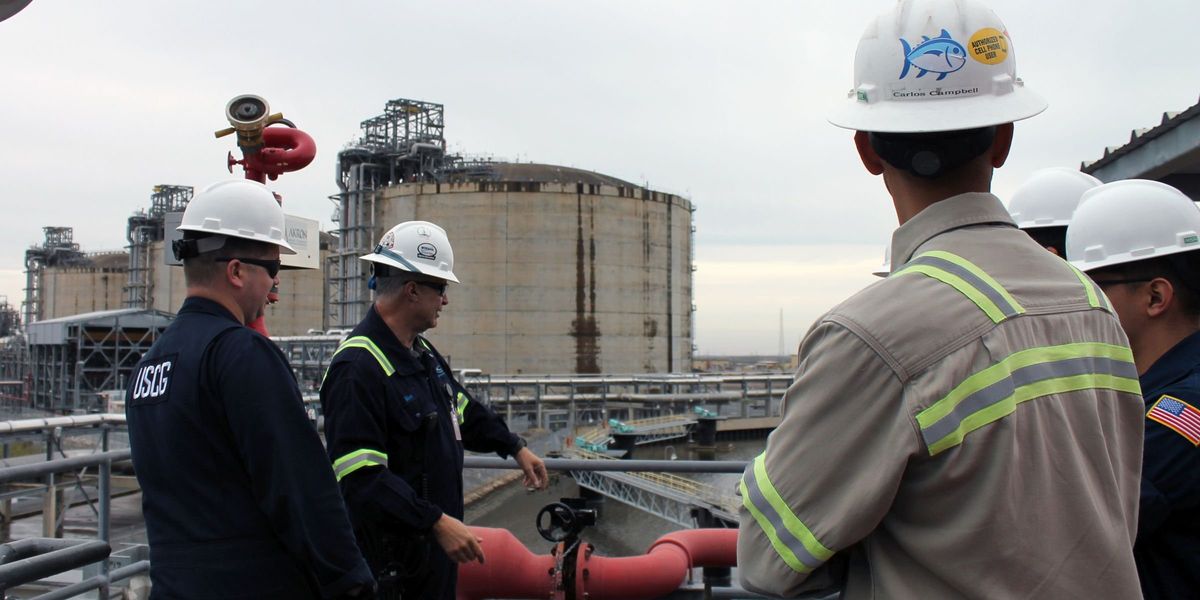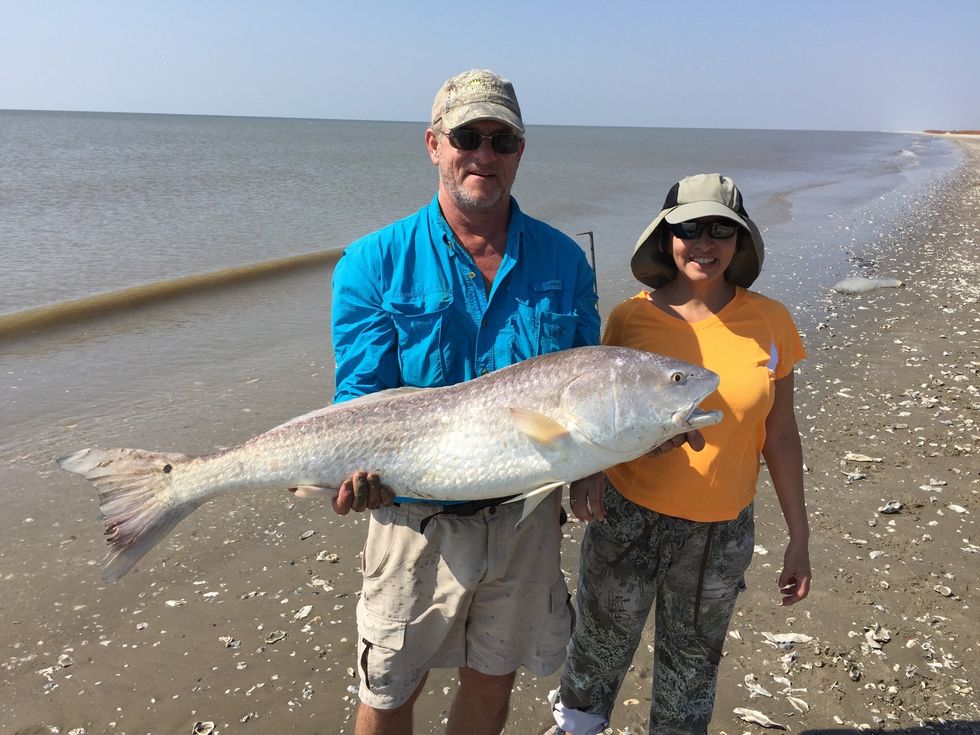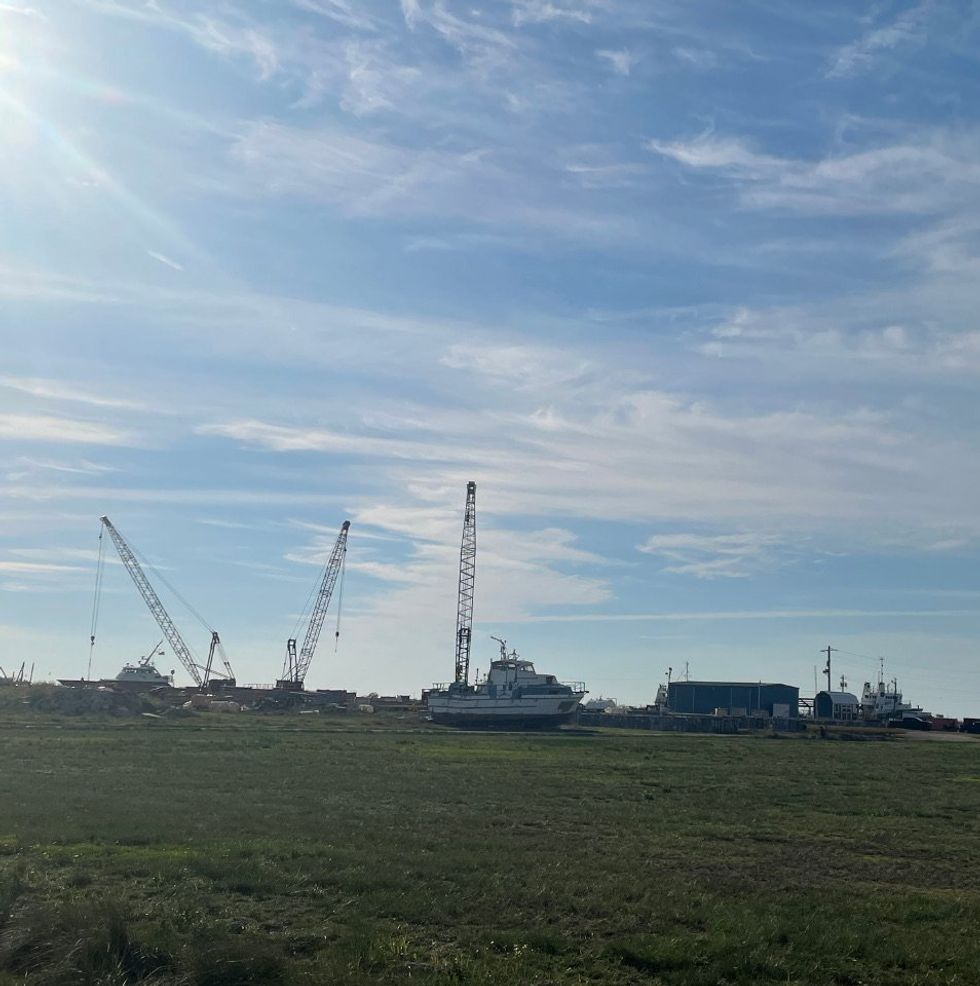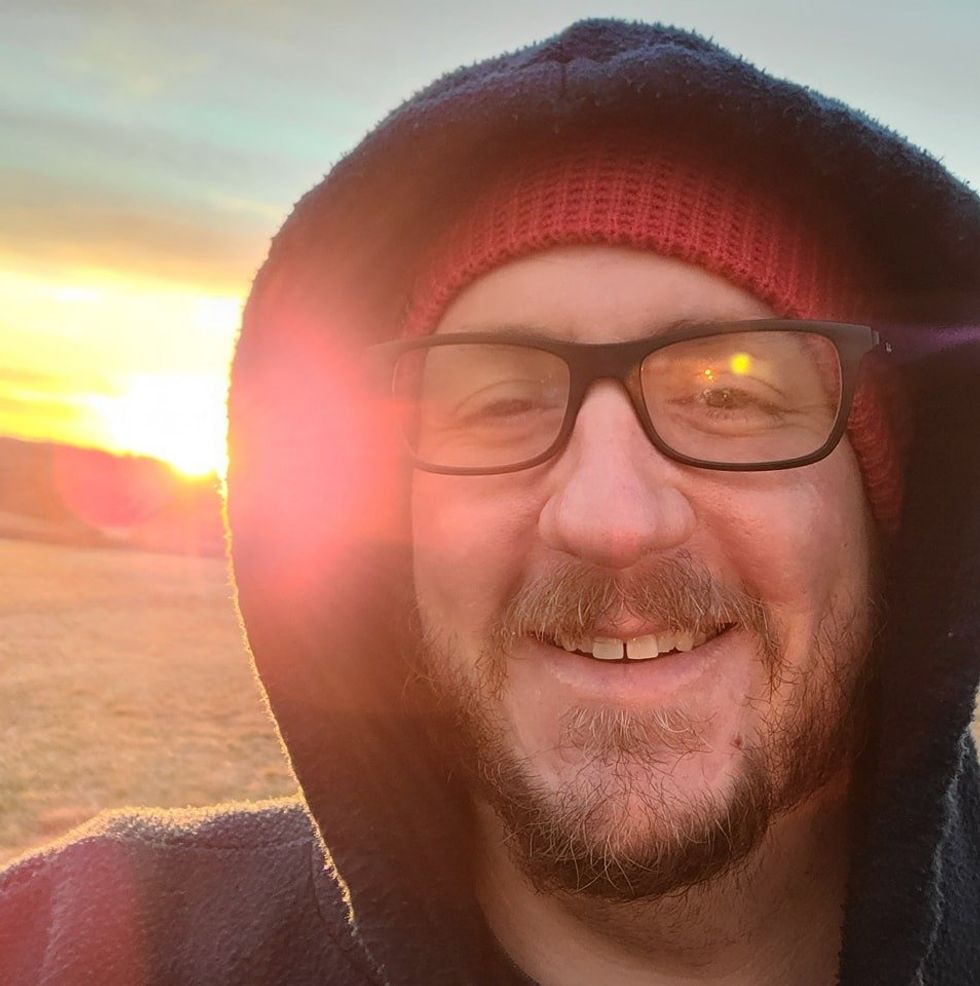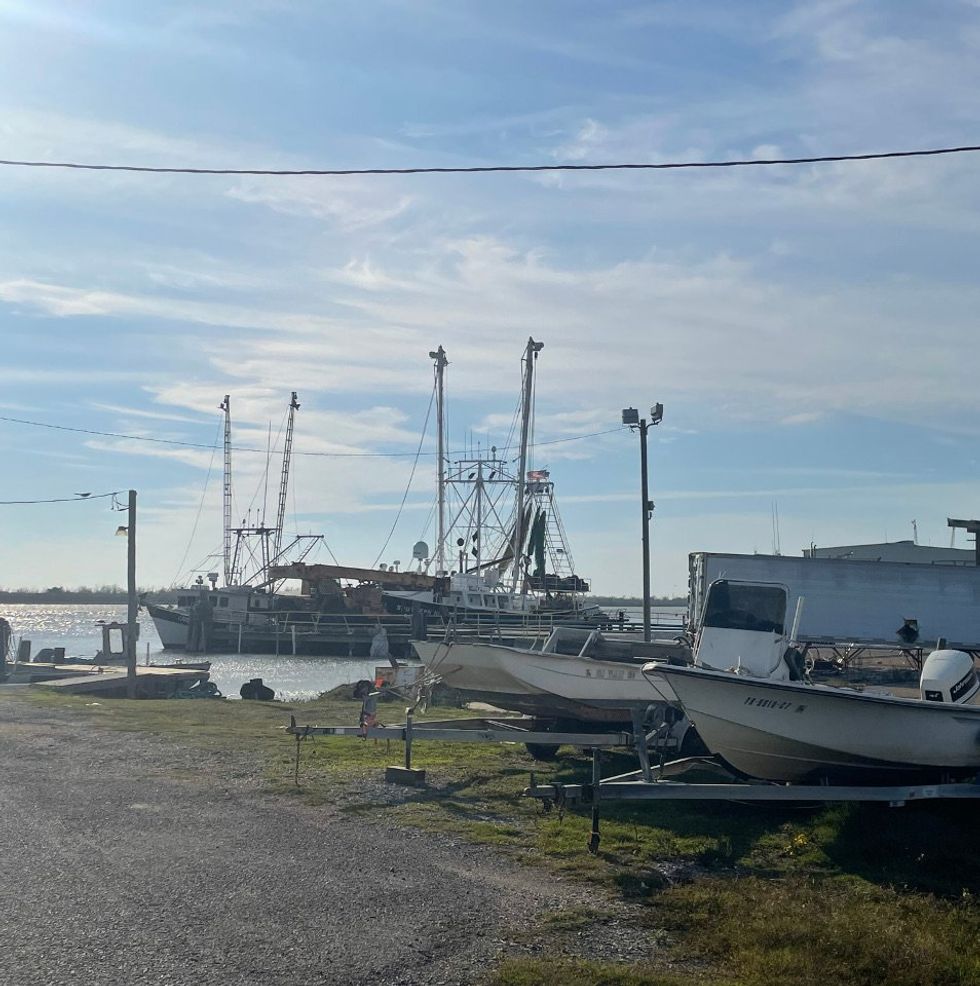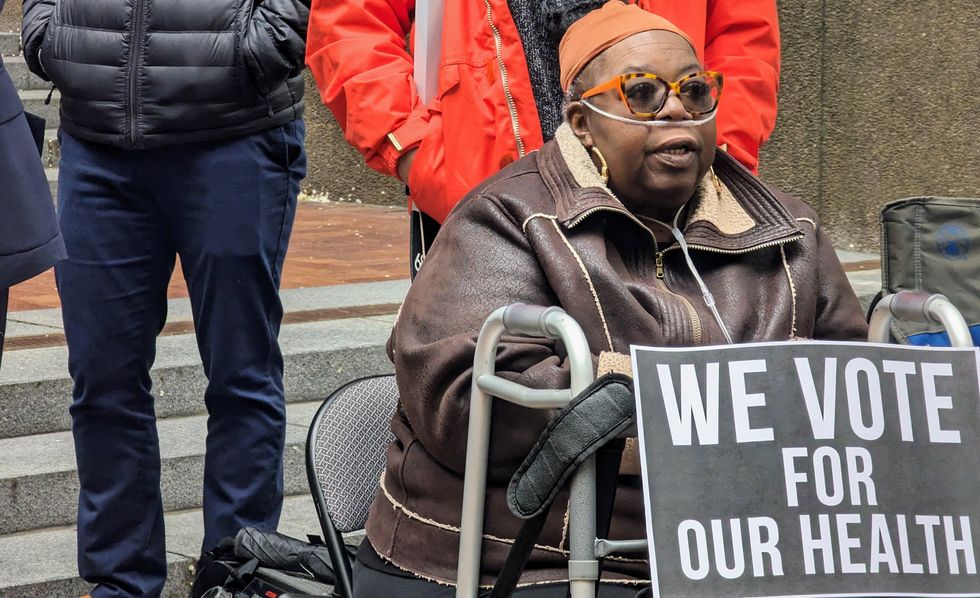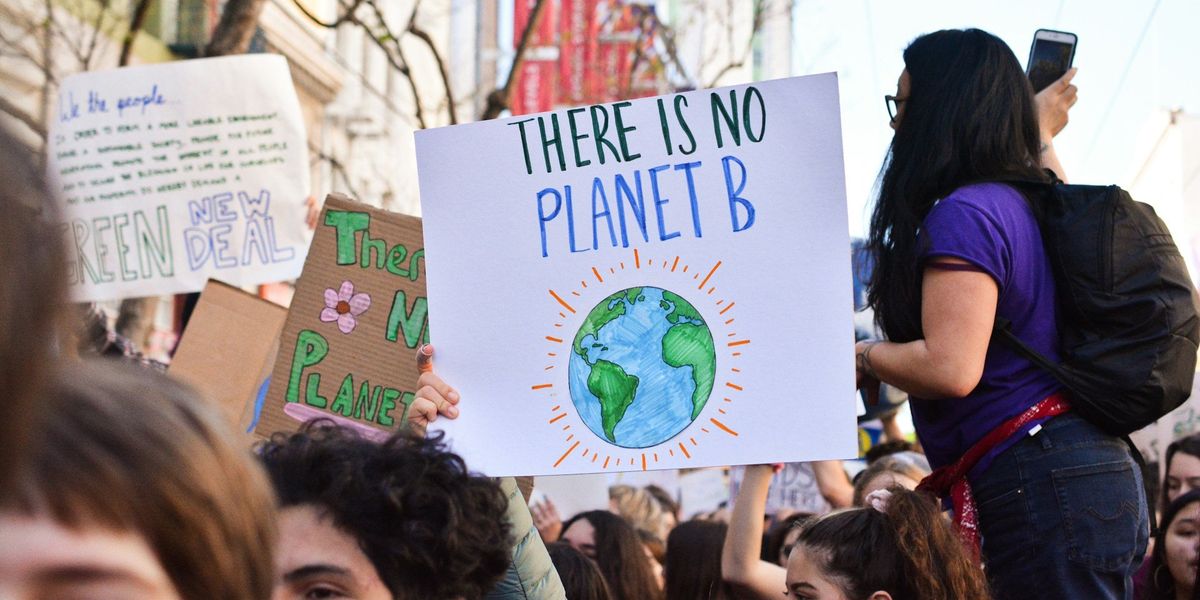
“We should take care of what is precious to us"
Eighth graders reflect on the state of the planet.
HOUSTON — This week EHN is publishing letters from eighth grade students at YES Prep Northbrook Middle School in the Houston-area neighborhood of Spring Branch, Texas.
English educators Cassandra Harper and Yvette Howard incorporated the environment into a series of lessons in December last year. Each student conducted their own research to begin drafting letters to EHN about their concerns or hopes. EHN reporter Cami Ferrell visited their classrooms to share information about her personal reporting experiences in Houston.
The collection of letters, some of which were lightly edited, do not represent the opinions of YES Prep Northbrook or EHN, but are offered here as a peek into the minds of children and their relationship with environmental issues. You can see the first set of letters here.
Gissel Leiva Salgado
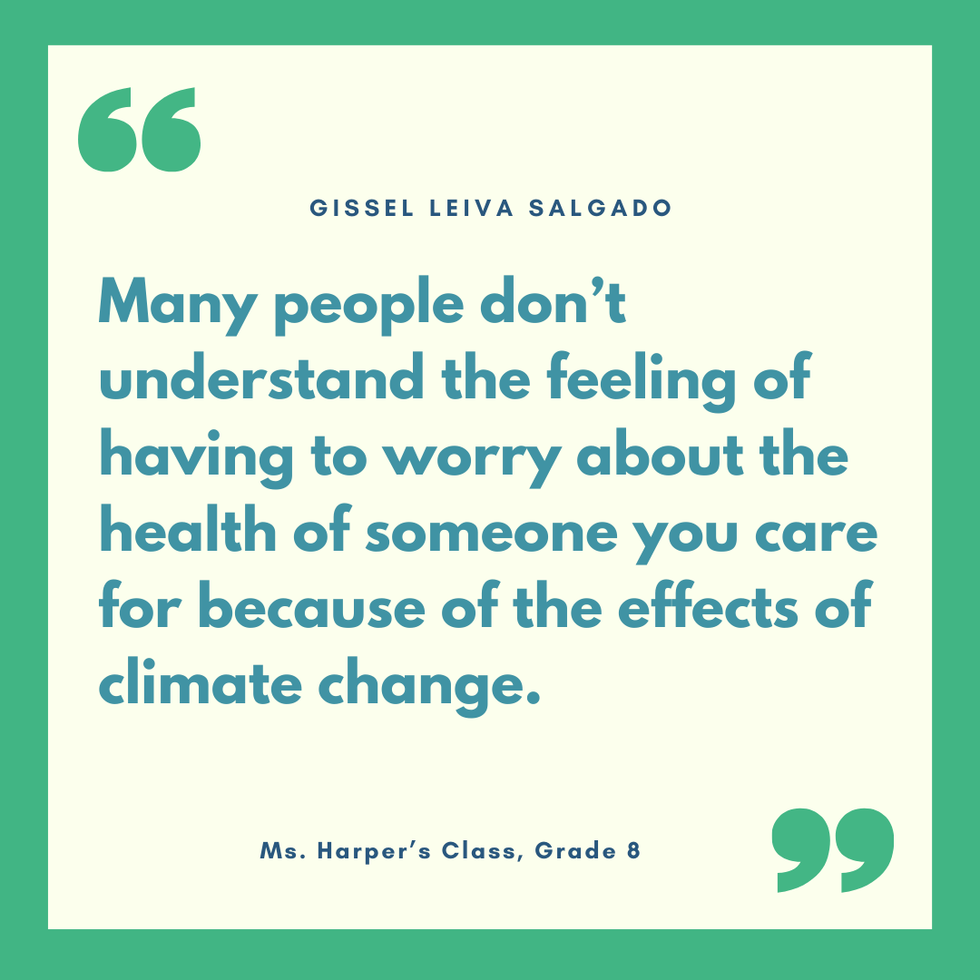
Many wonder where our future is headed; some imagine flying cars or living on new planets, but we might never be able to get there if we continue to live the way we are. Many people aren't aware of how damaging climate change is for our environment and health. This letter aims to inform people why they should worry about climate change and try to help however they can.
One issue that many people don’t realize is one of the major causes of climate change: the overuse of fossil fuels and refineries. Using fossil fuels causes greenhouse gasses to rise into the atmosphere, making it hotter on Earth. Refineries also release harmful gasses that can cause many illnesses due to the bad air quality they create, and they can also cause the people working in them to develop health issues.
In the Spring Branch area, the majority of people are Hispanic and have jobs that require them to work outside. Climate change can affect them more because of their jobs since they have to spend hours upon hours working outside in extremely high temperatures. This can cause heat-related illnesses. Many people don’t understand the feeling of having to worry about the health of someone you care for because of the effects of climate change.
Many of us imagine the future getting better as we advance in technology and medicine, but we forget the negative things we ignore. We ignore how the air quality gets worse and the water becomes more filled with harmful plastics. Our decisions as a whole affect the world around us in major and minor ways. Because of our decisions future generations may never be able to see and experience things we did like seeing certain plants, places or animals. We all need to work together to improve the state of our planet if we want even a slight chance of getting back what we’ve ruined.
- Gissel Leiva Salgado
Gavin Rodriguez
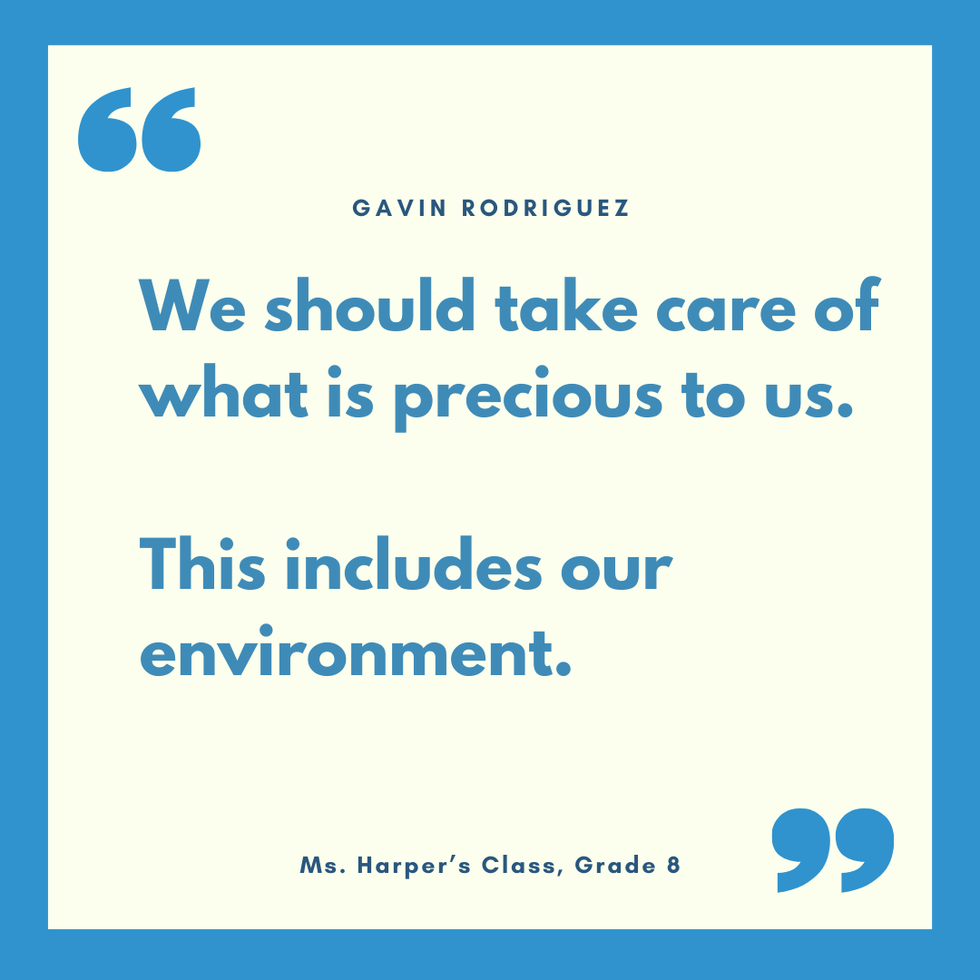
We should take care of what is precious to us. This includes our environment. With the current climate crisis, we are abusing the Earth. Every summer breaks new heat records and the winters are colder than ever, which is not normal. I am writing to you to convince all people to act against climate change in any way possible.
The issue here in Houston is that we are experiencing a rise in extreme weather. Specifically, this affects me and my community by leaving it an unsafe, unhealthy environment to live in. For example, just over a month ago, a fire broke out in the Spring Branch area. That fire could have been detrimental to Houston and caused many deaths. Although this wasn’t the case, people had to deal with breathing problems, inhaling that dangerous smoke. If this keeps up, it will cause significant problems in the community such as: health concerns, environmental problems, and the deaths of many.
The public must know about climate change because they are the people who can stop climate change. We as citizens can help with this issue by cutting down the use of cars, and other exhaust-based vehicles since the smog from these vehicles plays a major role in the air pollution that sits within the world today. We can do this by taking public transportation, walking to places more often, and riding bicycles to our destinations.
People can also reach out to the government to act on climate change, like petitions, or a letter, like I am writing now. To those who read my message, I thank you for your time and your consideration of my opinion.
- Gavin Rodriguez
Gaddiel Romero
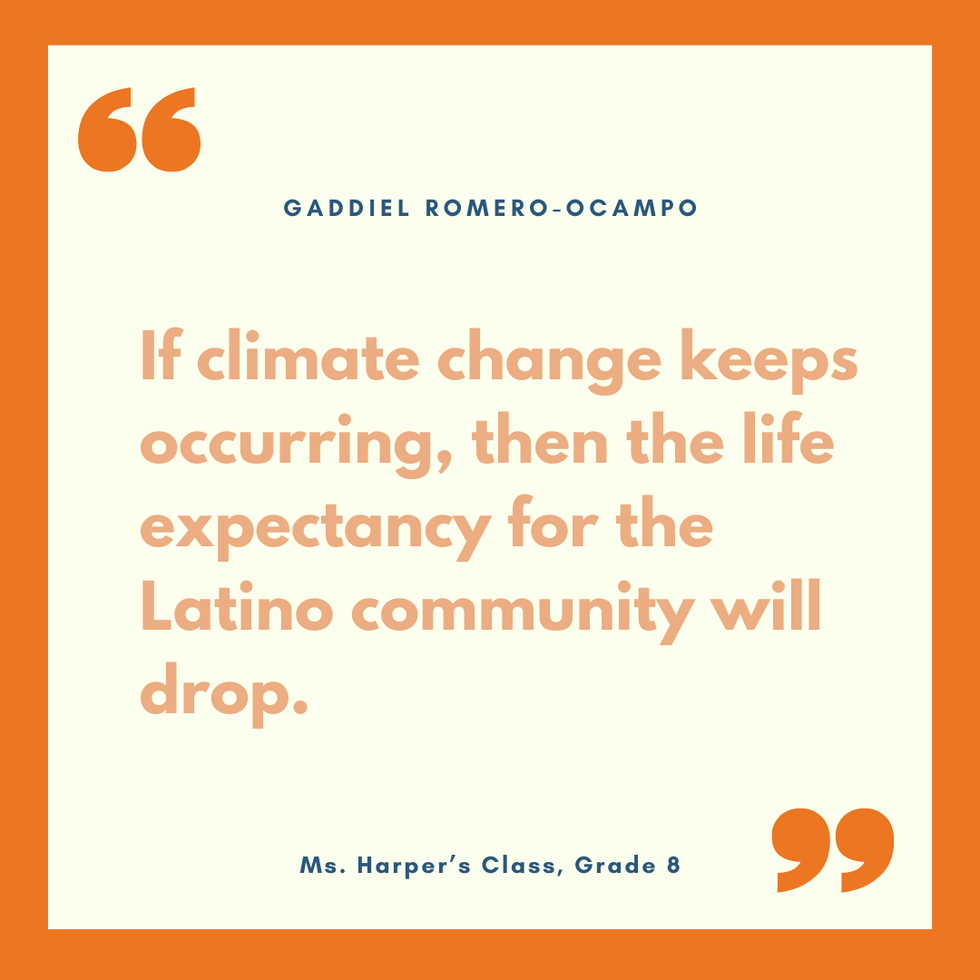
People have started to feel the change, how hot it has been getting and the natural disasters that have been occurring. The purpose of today’s letter is to address this issue that has been happening all over the world, but no one seems to want to take the time to talk about it, and mostly only protest about it. Climate change has started to occur due to the mistakes that we as humans have been creating and have chosen to neglect until now. Now more than ever, if we still want to have some of the things that we have, the animals, the buildings, and even the health that we have or the life expectancy that we have now we need to desperately make a change.
As for how people are getting affected by climate change, it can take a toll on your emotional health because it can cause you to feel hopeless, hateful, and other emotions due to how people work or interact with these changes. Climate change can affect many communities, such as Latino communities, because it has been proven by studies that Latinos have more jobs that involve being in the sun. This is bad because if climate change keeps occurring, then the life expectancy for the Latino community will drop.
Now, this letter is to get you, the people, the readers, to do something about this. To make changes, we need to try to do fewer things that are harming our world such as burning fossil fuels, and deforestation. These are only some examples of the many things that we do daily that harm our planet. If we still want to live here and the other generations to come, then now is the time to make a change.
- Gaddiel Romero
Fernanda Barrientos
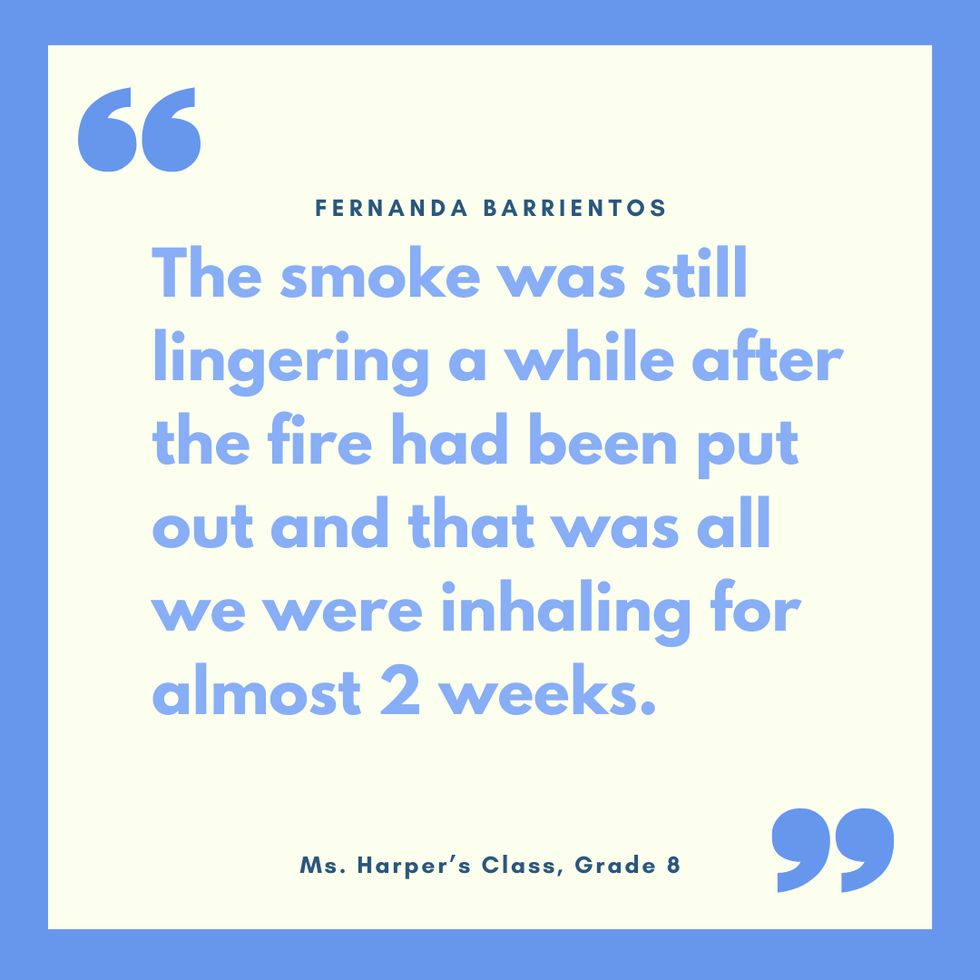
To address climate change, it is important that we put in more effort to inform others who do not speak our language about the harm climate change does to our health. To my readers, I want you to understand that one way that environmental activists can help with this is by trying to translate or write in different languages so that people who do not speak or understand the (original) language can get the same amount of information on this matter.
(In some communities) few people speak English, meaning that they do not get any or enough information about their health. This issue affects my community because many people are getting severe sicknesses and do not know why, due to not enough resources written in their native language. For example, a while ago there was a fire in front of my apartment complex and many people did not know about it, causing children to go to school inhaling all the smoke. This made me feel upset because as I stated before only a few people knew about it, and there were people living inside the woods that were not aware of the fire. This impacted my community because the smoke was still lingering a while after the fire had been put out and that was all we were inhaling for almost two weeks.
- Fernanda Barrientos
Jakeline Cebrian
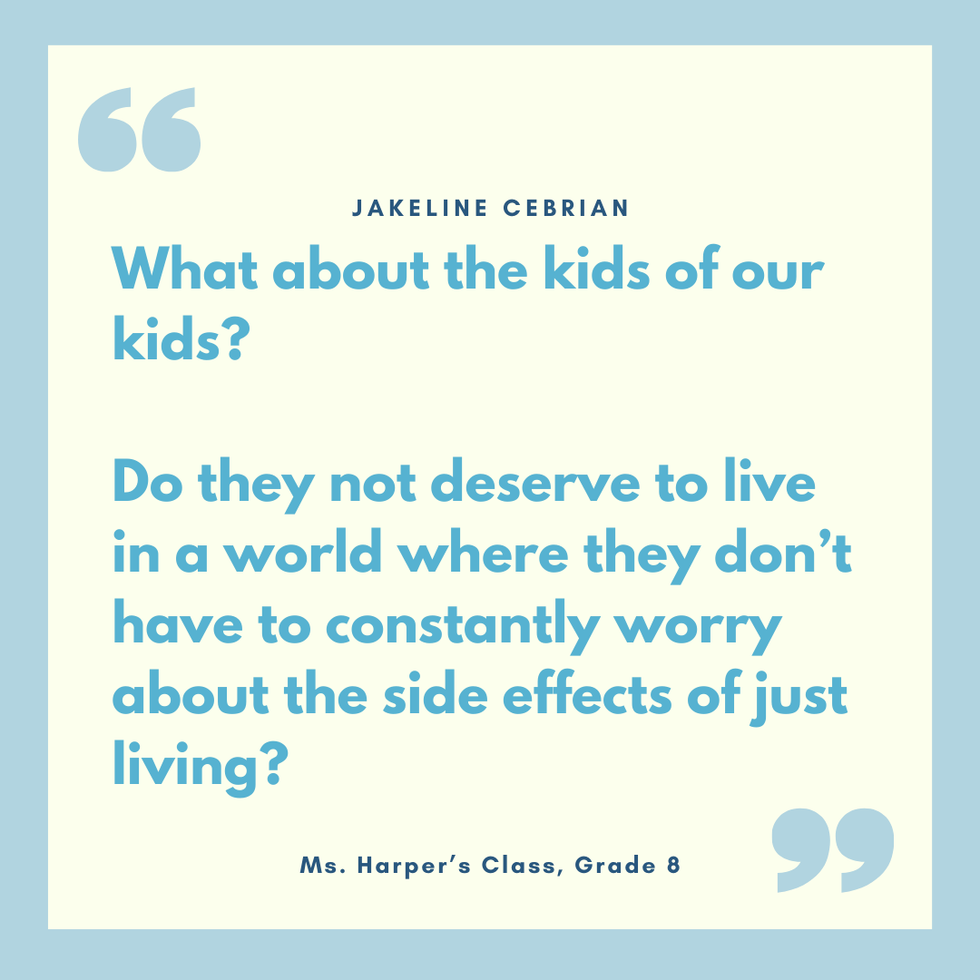
For a very long time, people have been talking about how climate change is becoming more prominent, yet nothing is being done. Generally, people either don’t care enough about it or just aren’t informed enough. My community, my family, me, we all are surrounded by oil and petroleum refineries and fires with unknown causes, yet it’s not like we are currently dying because of it, is it? I mean most people think that they won’t live long enough to see a true effect. They think that we will eventually leave this world and it will no longer be our problem. But then whose problem is it going to be? Eventually, someone will have to come up with something to fix a huge problem that could have been stopped before. A huge problem they didn’t even cause. Why should the people after us have to deal with something that they didn’t cause just because the true culprits didn’t do anything and now, they are gone? I understand that in our lifetime nothing extremely significant might happen, but what about the kids? What about the kids of our kids? Do they not deserve to live in a world where they don’t have to constantly worry about the side effects of just living?
Climate change might seem very intimidating but even the simplest of changes can have a significant effect. Simply eating more plant-based foods will mean less greenhouse gas emissions, and less land needed so not as many trees will die. However, it is important that the government also takes action. They should easily be able to come up with something as simple as being stricter when it comes to flaring —the burning of gasses— and venting —the release of gasses. They could also continue to support scientists such as the ones studying more about geoengineering or the ones who are restlessly trying to find and use recent technology to prevent further damage.
In the end, although climate change is unfortunately irreversible as of right now, there is still the option of not letting it get any further.
- Jakeline Cebrian



